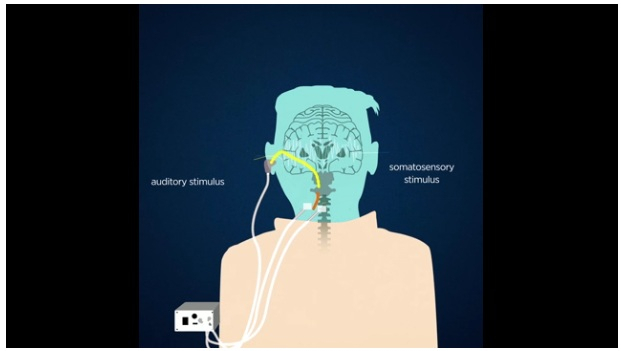
As weather changes, it's time tinnitus or ringing in ears is likely to be experienced by many. A US team from the University of Michigan has recently patented a new device developed to stop the ringing sounds in ears, called tinnitus.
Tinnitus is a sensation to the sound that is not caused by an external sound source but inside the ear and it is also associated with emotional stress, insomnia, auditory perceptual problems and concentration problems. As there is no treatment to stop the tinnitus noise, concentration can make it less severe, intrusive and bothersome, said one UK study in 2018.
But in another study by the University of Michigan, it was found that an experimental device could help quiet the phantom sounds by targeting unruly nerve activity in the brain. In their paper published in July in Science Translational Medicine, a team studied data from 20 human tinnitus patients.
The device uses precisely timed sounds and weak electrical pulses that activate touch-sensitive nerves and bring back damaged nerve cells to normal activity in four weeks. The U-M team further refining the approach. U-M holds a patent on the concept to develop the device.
"The brain, and specifically the region of the brainstem called the dorsal cochlear nucleus, is the root of tinnitus," says Susan Shore, the U-M Medical School professor who led the research team. "When the main neurons in this region, called fusiform cells, become hyperactive and synchronize with one another, the phantom signal is transmitted into other centers where perception occurs.
"If we can stop these signals, we can stop tinnitus," she continues. "That is what our approach attempts to do, and we're encouraged by these initial parallel results in animals and humans."
See video of the device HERE.
The approach, called targeted bimodal auditory-somatosensory stimulation, involves two senses. The device plays a sound into the ears, alternating it with precisely timed, mild electrical pulses delivered to the cheek or neck.
Approximately 15 percent of Americans suffer from tinnitus, but 10 percent of them have shown the worst symptoms, according to estimates. Tinnitus is also the most common cause of service-connected disability among veterans of the US military.









